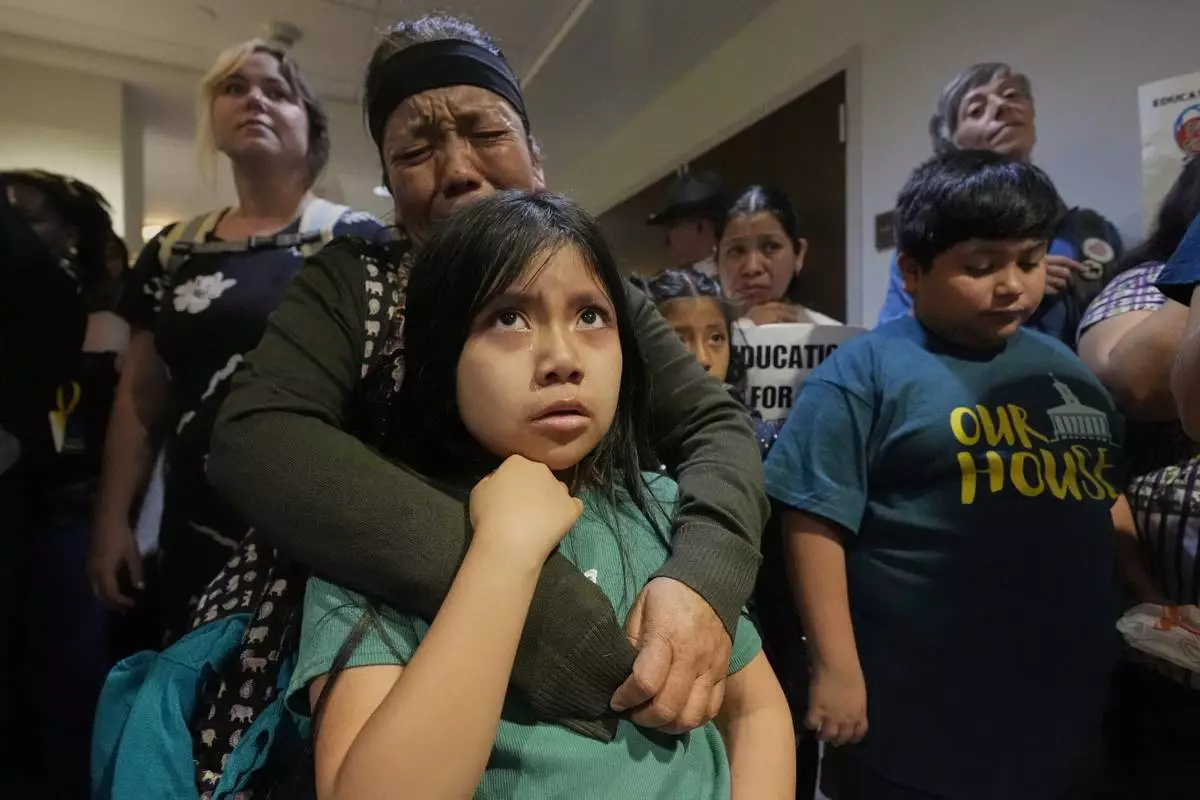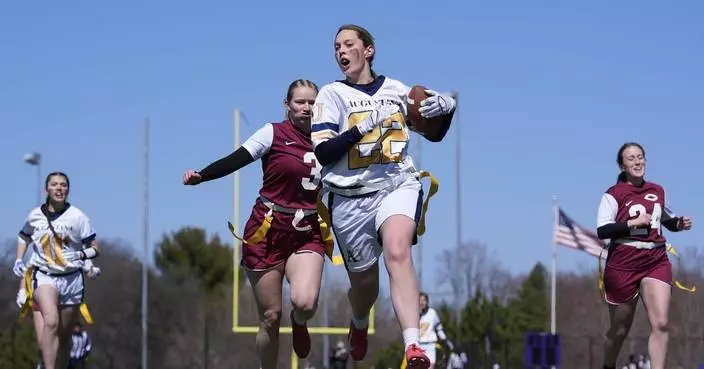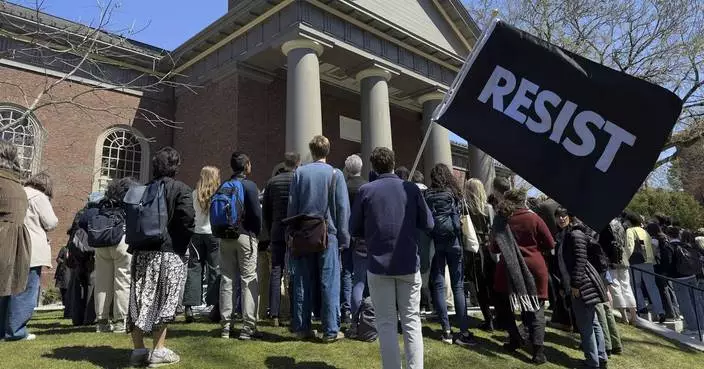A horse that collapsed on the racecourse after running in the Grand National has died, the British Horseracing Authority confirmed on Tuesday.
Celebre D’Allen — a 125-1 outsider in the storied British jumps race on Saturday — was pulled up in the latter stages before collapsing. After receiving treatment on the course, he walked into the horse ambulance and was taken to the racecourse stables for further assessment.
The 13-year-old horse was moved on Sunday to a nearby stud connected to his owner after showing an improvement in his condition, the BHA said in a statement, but died on Monday.
BHA chief executive Brant Dunshea said his organization was “saddened” to learn of the death of Celebre D’Allen and defended its health and safety processes, before and after the running of the Grand National.
There is “an extensive process of checks to ensure a horse’s suitability to race in the National,” Dunshea said, “which also includes a review of veterinary records and assessment by a panel of experts to consider a horse’s race record and suitability to race.”
Dunshea said the BHA and Aintree racecourse will analyze the race and Celebre D’Allen’s collapse, adding that the horse will be sent for post-mortem.
Britain’s Press Association reported on Tuesday that stewards at Aintree suspended jockey Michael Nolan for 10 days after inquiring into his decision to continue to ride Celebre d’Allen after jumping the next-to-last fence in the National.
“The jockey riding him (Celebre D'Allen) to the point of collapse received a pitiful 10-day suspension,” said Iain Green, director of animal-welfare activist Animal Aid, before criticizing the decision to allow “a horse of this age to race in the most punishing and notoriously dangerous race on record.”
The Grand National has long been regarded as one of the most dangerous horse races in the world because of the size of the fences. A number of new measures — including reducing the field from 40 to 34 runners and bringing forward the race’s start time — were introduced last year in an attempt to make it safer.
AP sports: https://apnews.com/sports

Racegoers fill the stands during the second race on the third day of the Grand National Horse Racing meeting at Aintree racecourse, near Liverpool, England, Saturday, April 5, 2025. (AP Photo/Ian Hodgson)

Horses compete in the second race on the third day of the Grand National Horse Racing meeting at Aintree racecourse, near Liverpool, England, Saturday, April 5, 2025. (AP Photo/Ian Hodgson)

Horses compete in the Randox Grand National Handicap Steeple Chase race on the third day of the Grand National Horse Racing meeting at Aintree racecourse, near Liverpool, England, Saturday, April 5, 2025. (AP Photo/Ian Hodgson)
NASHVILLE, Tenn. (AP) — Republican lawmakers in Tennessee have paused a bill meant to challenge the constitutional right for children to attend public schools regardless of their immigration status. Instead, with time waning in the legislative session, they are asking U.S. officials for guidance on whether the bill would jeopardize federal education funding.
The direction announced Monday by House Majority Leader William Lamberth, the bill sponsor, diminishes the chances for the bill to pass this year as lawmakers prepare for a likely adjournment this week. The Tennessee Journal first reported on Lamberth's decision.
Hundreds of children have packed the Tennessee Capitol this year to oppose the bill that takes aim at the protection established by the landmark 1982 U.S. Supreme Court decision in Plyler v. Doe. That decades-old decision struck down a Texas law that sought to deny enrollment to any student not “legally admitted” into the country.
The Republican-controlled Tennessee Senate has already passed a version of the bill, which would require proof of legal residence to enroll in public K-12 public schools and would give school districts the option — but not the requirement — of turning away students who fail to provide proper documentation or to charge them tuition. The House version, which remains idle in a subcommittee, differs by letting public schools check immigration status, rather than requiring it.
Lamberth noted that Tennessee receives approximately $1.1 billion in federal education money annually.
“We fully trust the Trump Administration will not withhold federal dollars from our schools due to the passage of House Bill 793/Senate Bill 836,” Lamberth said. “However, out of an abundance of caution, we want to be exceptionally careful before we move forward to ensure no federal taxpayer dollars are at risk.”
A growing number of conservative leaders are pushing states to overturn Plyler v. Doe — including the conservative think tank The Heritage Foundation. Tennessee’s Republican lawmakers were among the most aggressive in pursuing the idea that directly contradicts Supreme Court precedent.
Proponents of the bill have largely downplayed denying children the right to education, but instead have focused on the fiscal impact states are facing in educating children residing in the U.S. illegally. However, it's unclear whether the bill would result in any savings.
In opposition, student have broken down in tears in front of legislative committees, distraught over their classmates being removed from their school and worries over who might be next. Some advocates applauded Monday's news but cautioned the bill isn't dead until lawmakers gavel out for the year.
“What’s undeniable is this: lawmakers have been forced to acknowledge the overwhelming, bipartisan opposition from across the state to targeting children and denying them an education,” said Lisa Sherman Luna, executive director of the Tennessee Immigrant & Refugee Rights Coalition.
Lawmakers and other conservative supporters repeatedly point to the 5-4 vote that determined Plyler in 1982, arguing that the narrow margin means there's a better chance the precedent could be overturned by the current Supreme Court. Notably, the court has overturned the right to abortion.

FILE - A woman embraces her child outside a House hearing room during protests against a bill that would allow public and charter schools to deny immigrant students from enrolling for classes in Nashville, Tenn., March 11, 2025. (AP Photo/George Walker IV, File)























































